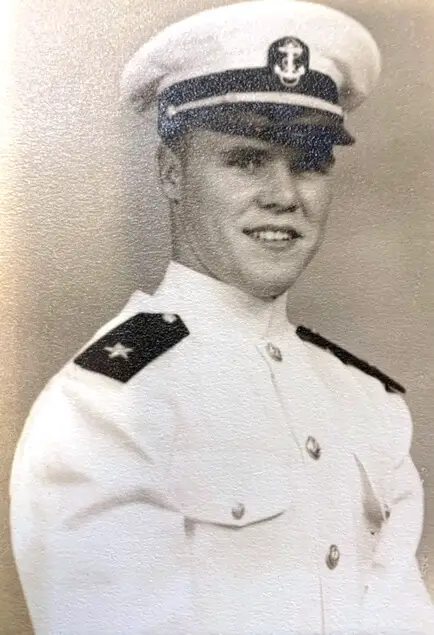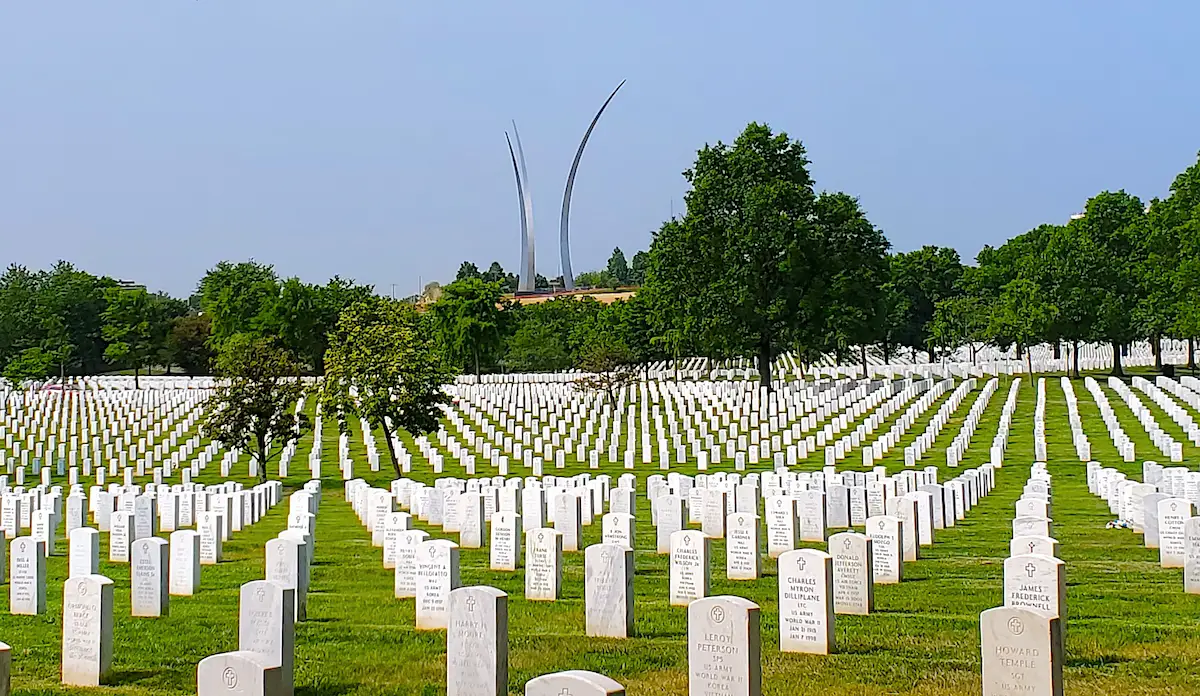When and Why Memorial Day Was Declared a Holiday
Memorial Day is now a three-day holiday. Many of us think of it as three days off of work without much thought as to why it has been set aside as a day of commemoration.
Memorial Day is a federal holiday in the United States. It has been commemorated to honor and mourn military personnel who died while performing their duty. It is observed on the last Monday of May each year. Memorial Day was originally called Decoration Day, and it began after the Civil War. It became an official federal holiday in 1971.
420,000 Military and Civilians Killed in WWII
World War II ended on September 2, 1945. The war claimed the lives of an estimated 60-80 million people worldwide. The United States lost approximately 420,000 military personnel and civilians in World War II. This was about 19% of the total of 405,399 killed in the conflict.
According to the Defense Prisoner of War/Missing Personnel Office, there are still 72,223 U.S. servicemen still unaccounted for from World War II. With the worldwide fighting, often in remote areas, it is not surprising a number of our military personnel were never recovered.
America is a generous, compassionate nation. This is reflected in the fact that efforts are still being made to recover the remains of those that went missing. 80 years later, efforts are still being made, and some of these efforts have been successful.
In the spring of 1944, the mother of 2nd Lt. Thomas V. Kelly Jr received a letter informing her that her son was killed in action. His plane was hit by antiaircraft fire and disintegrated during a mission in New Guinea. Lt. Kelly and 10 other men were aboard the B-24 bomber when it was shot down over the Pacific Ocean.
The remains recovered from a remote area of the sea more than 200 feet deep have arrived in the U.S. after an extraordinary 10-year effort.
Seeking “Fullest Possible Accounting” for American Personnel
While this effort was private, much of the work to recover remains is performed by the Defense POW/MIA Accounting Agency.
This agency seeks the “fullest possible accounting” for U.S. personnel. The searches are to determine what happened to U.S. personnel unaccounted-for from America’s designated past conflicts (World War II, Korean War, Cold War, Vietnam War, Libya, and the wars in Iraq (Desert Storm/Iraqi Freedom)).
Unaccounted-for personnel are commonly referred to as “missing.” Department of Defense policy is that unaccounted-for DoD personnel from past conflicts are “accounted for” if they are returned alive or their remains are recovered and identified.
“American Imperialism” and Memorial Day
If this video is an indication, many do not know or care about the holiday and American history. As one Georgetown student proudly stated in this video, he learned in his gender studies class that the holiday is a celebration of “American imperialism”. Since starting college and taking that class, he had been on a path of “f*** the U.S.”
Perhaps this view is the result of a successful effort by our education system to change how our children perceive and understand American history.
For many families, the holiday is personal. The view that the holiday celebrates “American imperialism” rather than remembering those who died in defense of their country is offensive—as it is undoubtedly intended to be.
Here is one example.
What is a Flyboy?
“Flyboys” is a term popularized in American English in a book on World War II in the Pacific by James Bradley and published in 2003. “Flyboys” generally refers to pilots, and oftentimes specifically to those who fought during World War II.
The Bradley book refers to Airmen, specifically fighter pilots, in World War II. Based on actual events, he describes an air raid over a Japanese island, Chichijima, in which ten American crewmen survived being shot down. Nine of them were captured and subsequently killed and cannibalized.
The events were discovered after World War II. In 1946, 30 Japanese soldiers were court-martialed on Guam, and four Japanese officers were found guilty and hanged.
Military Service and Patriotism
In World War II, Americans often saw the war as a struggle for survival, and serving in the military was usually considered a patriotic duty.
There were 12 million men and women serving in the military. America was less urban and more rural. Millions of young men living on farms went into the military to do their part to help America prevail in the World War.
Many men were drafted or joined military service before being drafted. There were some exceptions for men working on farms as Americans needed a large food supply during the war, and hiring workers and people with farming expertise could be difficult.

In the small town of Plainfield, Vermont, two young men who worked on a farm decided to join the Marines instead of milking and feeding cows on a dairy farm. They viewed military service as a patriotic duty. Both didn’t need to join the Marines as their work on the farm would have enabled at least one of them to avoid going into the military.
The younger man who joined the Marines wanted to become a pilot. He succeeded.
He was trained at Pensacola Naval Air Station in Florida. After intensive training throughout 1943, he found himself stationed as a pilot on the USS Bennington late in 1944 and a pilot of a Corsair aircraft.
On March 14, 1945, the Bennington started a series of attacks on the Japanese homeland in preparation for an invasion.
Alternating Boredom and Intensity
As many who have served in the military will attest, time in the military often means alternating between periods of boredom and periods of intense activity. Life for the flyboys aboard the Bennington was no different.
On March 5, 1945, Ralph wrote to his parents:
We’re supposed to be resting now but as far as I’m concerned I get more tired of hanging around doing nothing than when we’re at sea. We’ve got no place to go but a little sand island where they have a shack and sell beer….There’s nothing else to write about. We’re just sitting, doing nothing but wish they’d either send us back to the states or back where we have something to do.
The boredom gave way to more exciting events. A few days later, in an undated letter, Ralph wrote again to his parents:
I have neglected to date this letter. I’ll just say the eve before battle. It’s no longer a thing new to us….It’s just like taking off on a gunnery hop at Santa Barbara. Last night and today we had the roughest weather I have seen. Our ship is pretty big though…it’s the boys on the destroyers that I pity. We have not received any mail in almost a month except for one letter I got from a girl in California….So for lack of more dirt, I’d better close. Don’t worry, we always come out on top.
A few days later, on March 19, 1945, the American military task force began flying off fighter aircraft to sweep over the airfields around Kure Naval Base in Japan. An air attack of 158 Curtiss SB2C Helldiver dive bombers and Grumman TBF Avenger torpedo bombers, escorted by 163 Hellcats and Vought F4U Corsair fighters, attacked Japanese ships and installations in the area. The total casualties of the battle resulted in 14 American and 25 Japanese aircraft being shot down.
On March 24, 1945, the Commanding Officer on the USS Bennington sent a letter to Ralph’s parents. He wrote:
…[O]n March 19th, we were intercepted and attacked by a very large formation of enemy fighters in the neighborhood of Kure Naval Base…During the fight, Ralph’s plane was hit and he started gliding towards the Inland Sea with his engine smoking badly….Ralph has opened his parachute in preparation for a jump….If Ralph was able to bail-out or make a water landing, he is undoubtedly a prisoner of war now.
Missing in Action
Ralph is still listed as officially missing in action. His body was never recovered. I was advised by the Defense POW/MIA Accounting Agency that urns had been located in a cave in the area that may be filled with ashes of American military personnel that may have been pilots and may have included remains of Ralph Russell. Identification was not possible.
Learning About “American Imperialism” in College
Memorial Day has a long history and was created to honor those who died while serving in the U.S. military.
Most of us think of the holiday and are grateful for the sacrifice of those that died to enable new generations of Americans to experience personal freedom that is unique in the world.
Some people, such as the students providing quotes for the article and video above, are now learning in college the holiday is a way to celebrate “American imperialism.” Hopefully, some of these “educated” students will learn enough history elsewhere in their college experience and overcome the lessons transmitted in gender equality and similar courses to see a broader context—including threats this country has faced to endanger the individual freedom so important to some who came before them that they were willing to defend the system we are still able to enjoy.



